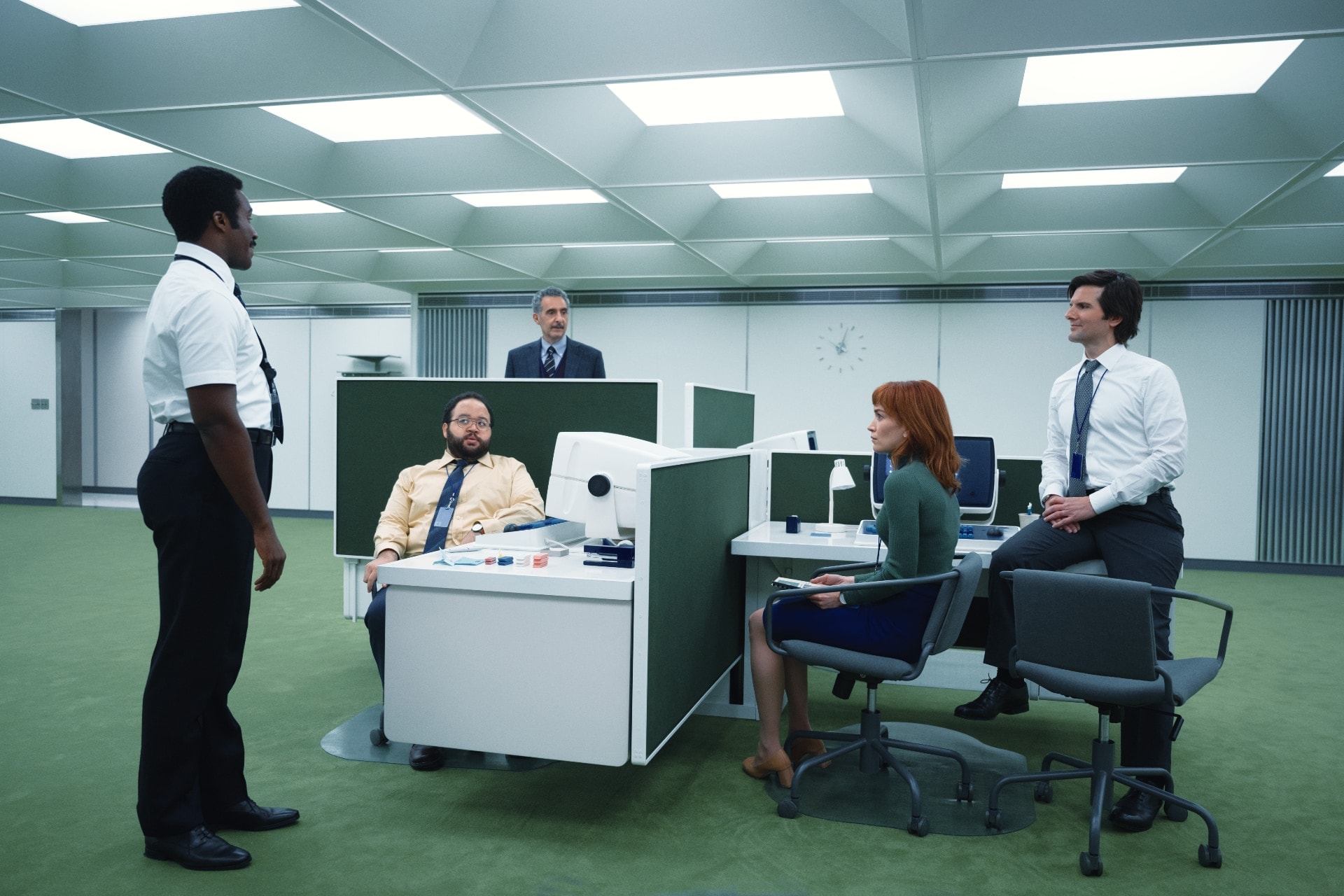4/8/2022
Apple's Marxist TV Show

Photo: Apple.
Apple TV+’s Severance is that kind of entertainment full of references to thoughtful, deep themes distilled into obviousness. No wonder (and, of course, not only because of this) it’s been so successful.
Even someone as ignorant as I am in Marxist theory can pick up on such influence in the show. Not so much on the viewer’s merit, though. It is that Severance kind of rubs this in our faces: the work is repetitive, mysterious, nobody there can see its result or even know what it is for, and employees give up their autonomy in a way that the owners of capital can only dream of today. It’s pretty much Karl Marx’s theory of alienation 101.
To those unaware, in Severance (the TV show) a mega-corporation, Lumon Industries, developed a brain implant capable of splitting someone’s consciousness into two: one exclusively dedicated to work, and one for everything else. Whoever goes through the severance procedure kind of becomes two people, whom everyone refers to as “inners” (workers) and “outies” (free, non-worker one).
The novelty is sold as the future of work, an easy and convenient solution to enable the utopian split between “real life” and “work life,” taken to an extreme there: when going down Lumon’s underground elevator, employees simply switch personalities and forget any memories from outside the company building, and vice versa.
Mark S., the protagonist played by Adam Scott, volunteered for the severance procedure after losing his wife in a car accident and burned-out at his job as a professor. It was the escape he found to mitigate the pain (at least from 9 to 5) and get back on the market.
Obviously, this arrangement doesn’t work for long. Two interconnected events trigger the suspicions and move the story forward: the arrival of Helly R. (Britt Lower), who from the first minute hates the “inner” life she sees herself stuck on and does her best to escape Lumon after Petey (Yul Vazquez), Mark’s former boss and friend, fired and “reintegrated” — i.e. reversed the severance procedure —, goes after the “outie“ Mark, to whom Petey is a complete stranger.
Along the way, Mark and his colleagues begin to discover the inhumane system they have subjected themselves to, the widespread corruption from their superiores at Lumon, and that the sky is blue. (It could just be a silly joke, this last discovery, but considering that the “inners” never go outdoors… maybe not?)
The macrodata refinement division’s office, where the four main characters work, resembles a typical 1980s American office — right down to the computers, with their monochrome CRT screens with keyboard and trackball attached.

Photo: Apple.
The aesthetics of this environment is a marvel in itself. And despite the visual strangeness and the anachronism — revealed in external scenes, outside the weird office and Lumon’s labyrinthine corridors, where tech and other things are contemporary —, the treatment of the employees is recognizable to anyone who has ever worked in an office, perhaps just a little more exaggerated. From the pathetic “perks” (although the “defiant jazz” scene is quite amusing) to the dumb bureaucracy, not to mention the micromanaging of the employees, it’s all there.
In that sense, Severance is perhaps the best joke that comedian, director and executive producer Ben Stiller has ever told: the show works perfectly as a self-parody of Apple, which publishes it on its streaming service. Apple, let’s remember, a company that built a USD 5 billion headquarters where employees bump into unsigned glass walls because ~aesthetics and creates barriers for WFH despite the increase in productivity and quality of life of employees, both of which was proved true during the pandemic.
That Severance is available only on Apple’s streaming service is both a fine irony and a declaration of the overwhelming victory of capitalist logic over other ways of thinking, a logic capable of swallowing everything, even the sharpest criticism, and regurgitating a sleek product with a price tag attached.
In the universe of Severance, the Severance show could just as well be released on a Lumon streaming service. Even a Steve Jobs-like leader they have: the spirit of Kier Eagan, the beloved founder, is present all the time as a guide and an inspiration to the obedient employees of the company.
The first season ends at the climax, but with a cheap and lazy cliffhanger, another symptom of the system in which the show exists — after all, you gotta keep those Apple TV+ subscriptions. And here we go, waiting a whole year to find out what happens in the already confirmed second season.
Unfortunately, all this transforming potential ends up being wasted by many people, judging by the comments on social media and reviews from the press, for whom apparently Severance is just a stylish, well paced science fiction set in a strange office. C’mon, even Apple itself, which vetoes sex, violence, and politics from a number of Apple TV+ shows, seems to ignore the extremely subversive appeal and political nature of Severance.
In the end, it’s like those people who complain that Rage Against the Machine’s music would be better if they left “political bs” out of it. Ignorance is bliss.